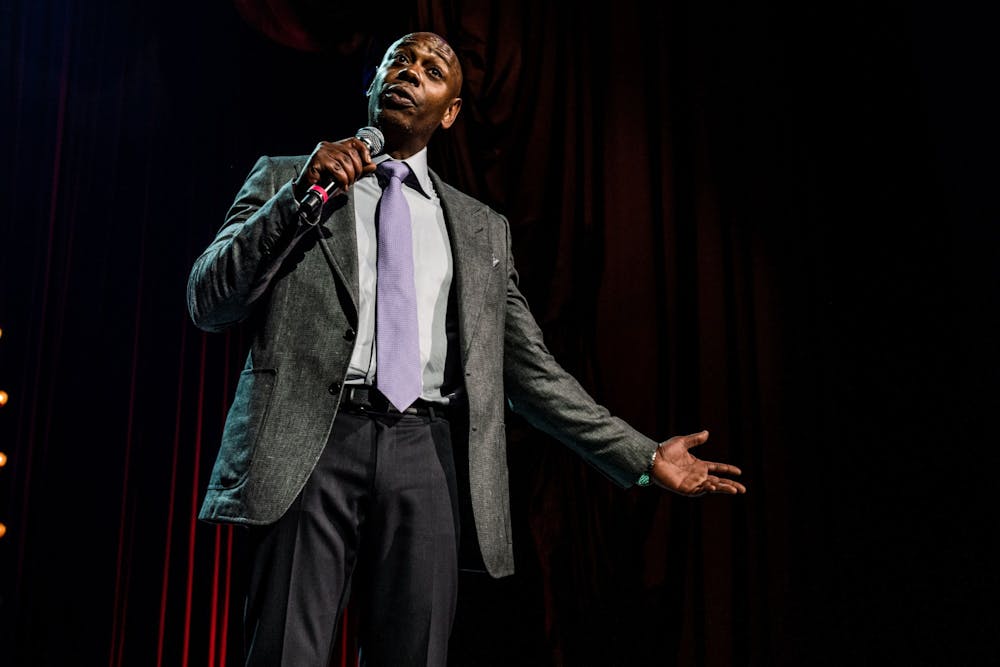I’m a comedian who loves getting on stage and making a fool of myself, but I probably won’t be able to do it again in Bloomington. Thanks to the COVID-19 pandemic making a ruckus across the globe, I’ve had to cancel all my gigs. It’s a bummer, but it’s also left me with time to reflect.
There's one issue I've been thinking about that's particularly complex: insensitive jokes. I’ve heard a lot of nasty, deliberately hurtful jokes in my time, but I think those jokes might actually have educational value.
Last semester, I had the pleasure of performing at the Comedy Attic’s open mic. It was a great night — with the exception of one act, in which a fellow comedian made a joke involving “Game of Thrones.” The punchline was that women are at the root of society’s problems. The room was quiet, with only a few scattered chuckles during the uncomfortable pause in the set.
He bombed. Hard. Hopefully it was a learning experience.
So it goes in comedy. Making insensitive jokes is unfortunately common when you’re figuring out your own comedic sensibility. So here’s how you might avoid a faux pas the next time you play the fool. The key is empathy.
I may not be a famous comedian, but I have done a lot of comedy. Understanding how a given group might respond when you tell a joke at their expense is the best way to vet your material. I ask my women and nonbinary friends if they’d find a particular joke funny. It’s generally been an effective strategy.
Did this comedian ask any friend who wasn't a cisgender man how the joke might land? Being receptive to criticism about your material is the best way to improve.
The second-best way is to guess whether a joke will bomb while you’re telling it on stage. It’s effective because you get immediate results that require no interpretation, but you’re also making a lot of people uncomfortable at the same time.
It might also be wise to use famous comedians’ material as cautionary tales.
Dave Chappelle, in his 2019 Netflix special “Sticks & Stones,” included a joke that left tact at the door. The subject matter was about sexual assault by celebrities.
It’s regrettable that Chappelle wrote the bit the way he did, punching down at sexual assault survivors more than he punched up at sexual abusers. He’s a massively influential talent that many comedians, me included, look up to.
None of this is to say that societal taboos and values should not be interrogated. Comedy is an amazing platform to do that.
Take the George Carlin bit from his 1996 “Back in Town” HBO special in which he suggested that capital punishment should not be directed at drug dealers, but rather bankers who launder drug money.
The explicit description of the bankers’ punishment is what makes the joke funny, but it’s also what makes it a little unsettling. That discomfort is part of the joke’s value in discourse.
The timeless value of using uncomfortable subject matter to promote discourse is why I’m talking about a comedy special that's older than I am. Contrast that with Chappelle's outdated jokes. Carlin’s use of over-the-top rhetoric is evergreen, while Chappelle’s making light of sexual assault was out of touch decades ago.
Using tired tropes about women in the modern-day comedy scene won't go over well. That is unless you get input from women on how the joke should unfold. Using those tropes and then subverting them could be what saves the joke.
Intuiting the difference between provocative and miscalculated is a skill few master. Also difficult is knowing when to pull from the past, and how your audience will react.
The trials I’ve gone through to find the perfect joke are what make comedy such a rewarding experience.
Liam O'Sullivan (he/him) is a senior studying film and is an editor-in-chief of the Hoosier Flipside. He will stop at nothing to direct a Star Wars movie.






